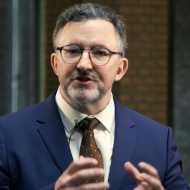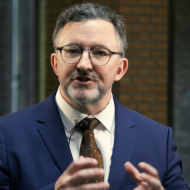A new GLO Discussion Paper using randomizes data from Bangladesh suggests offering commitment and screening applicants on present bias to enhance agricultural technology adoption.
The Global Labor Organization (GLO) is an independent, non-partisan and non-governmental organization that functions as an international network and virtual platform to stimulate global research, debate and collaboration.
GLO Discussion Paper No. 633, 2020
Contract structure, time preference, and technology adoption – Download PDF
by Chowdhury, Shyamal & Smits, Joeri & Sun, Qigang
GLO Fellow Shyamal Chowdhury

Author Abstract: Do constraints to technology adoption vary by behavioral traits? We randomize 150 villages in Bangladesh into being offered standard microcredit, loans with a grace period, the choice between those two contracts, and control. No discernible average effects are detected on the adoption of mechanized irrigation, hybrid seeds, and chemical fertilizers. However, credit access enhances technology adoption among present-biased farmers, whose output and profits increase. These effects are driven by the standard contract and choice villages, as present-biased farmers select out of the grace period contract. This suggests offering commitment and screening applicants on present bias to enhance agricultural technology adoption.
GLO Discussion Papers are research and policy papers of the GLO Network which are widely circulated to encourage discussion. Provided in cooperation with EconStor, a service of the ZBW – Leibniz Information Centre for Economics, GLO Discussion Papers are among others listed in RePEc (see IDEAS, EconPapers). Complete list of all GLO DPs – downloadable for free.

Ends;








